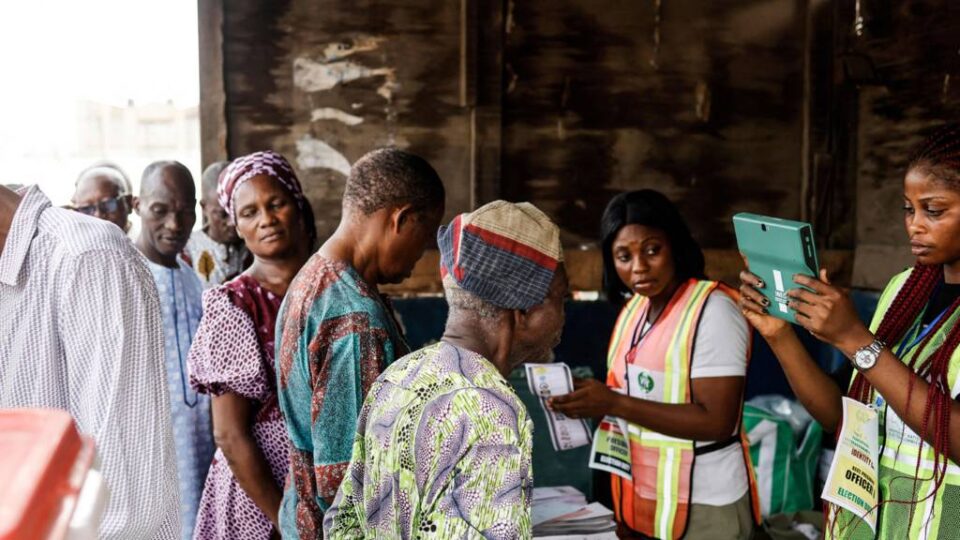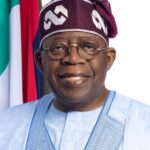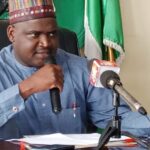By Felix Khanoba
Ahead of the November 11 governorship elections in Imo, Kogi and Bayelsa states, pro-democracy think tank, the Centre for Democracy and Development (CDD) has outlined some major factors that would shape the outcome of the off-cycle polls.
In a detailed 25-page report entitled; ‘Off-Cycle Elections In Bayelsa, Imo And Kogi: An Early Referendum,’ the globally renowned group observed that the November 11 polls hold a pivotal place in the country’s democratic process.
This is contained in a statement signed by Director of CDD, Idayat Hassan, which was obtained by The AUTHORITY on Wednesday in Abuja.
According to the group, the elections provide a unique opportunity for a “swift evaluation of the new government’s performance so far” and offer a referendum on how citizens in the three states respond to the leadership of the recently elected administration.
“The outcomes of these contests will significantly impact the political fortunes of the parties involved and lay the foundation for the upcoming general elections in 2027.
The 2023 Nigerian general elections marked an important milestone in the country’s democratic journey, characterized by technological advancements, increased civil society participation, and identity-based divisions among candidates and parties. These factors influenced the election results and set the stage for the off-cycle governorship elections in Bayelsa, Imo, and Kogi, ” it said.
Providing further insights, CDD noted that given the fact that the elections will be held approximately 120 days into the tenure of new administration, they present a unique challenge for both the ruling All Progressives Congress (APC) led by President Bola Tinubu, and the opposition, including the People’s Democratic Party (PDP) and the Labour Party (LP).
It further said that : “The performances of the elected governors, including Diri in Bayelsa, Uzodinma in Imo, and Bello in Kogi, will be closely scrutinized, as these states experienced contentious and litigated general elections at the beginning of the year.
“Identity politics, zonal considerations, and violence continue to influence the electoral landscape, making it crucial for parties to strategize effectively. The absence of governorship debates and the winner-takes-all approach further complicate the decision-making process for voters, potentially contributing to increased cynicism in Nigerian politics.
” The Independent National Electoral Commission (INEC) plays a crucial role in administering these elections, given the scrutiny it faced in the 2023 elections. The use of technology and electronic result transmission has been introduced, with some concerns regarding the recent Supreme Court ruling and the appointment of resident electoral commissioners. The public’s perception of INEC’s performance will be a defining factor in the credibility of these elections.”
On the state of the race in Bayelsa, the report said there are 16 governorship candidates in the election – 14 male and two female.
“The contest is primarily expected to be a two-horse race between two governors seeking a second term – Incumbent Governor Duoye Diri of the PDP and former Governor Timipre Sylva of the APC. Both candidates are strong and expected to make a considerable showing in the race. However, there is momentum building around the candidacy of Eradiri Udengmobofa of the LP. He is expected to benefit from Obi’s impressive showing – finishing second in the state with 30% of the vote during the presidential election – as well as his previous role as a leader of the Ijaw Youth Council, ” it said.
CDD, however, lamented that a major concern about the November 11, off-cycle elections is the role that misinformation, disinformation, and fake news are expected to play.
“During field assessment visits, several election stakeholders expressed concerns about the role that political parties were playing in the information space around the elections. Most parties use influencers and youth mobilisers to spread disinformation campaigns about opposing parties and candidates.
“Groups are utilising shared platforms with election officials, party officials and media groups to try and reduce the likelihood of misinformation, disinformation, and fake news affecting the conduct of the elections. Some chieftains alluded to the fact that women were also unfairly targeted during such campaigns. Lastly, literacy has been highlighted as a key factor in this space – because of this, it is likely such campaigns will be through word of mouth and less monitored platforms,” the group said.
On the state of the race in Imo State, CDD noted that candidates in the Imo state governorship election this year reflect the overall lack of inclusion in Nigeria’s politics.
The group said: “All 17 governorship candidates are men, and only one is a person with disability. There are two women deputy governorship candidates, but that pales in comparison to the number of men on the list. The established frontrunners are incumbent Governor Hope Uzodinma of the APC, Samuel Nnaemeka Anyanwu of the PDP and Athan Achonu of the LP. Tony Ejiogu of APGA is likely to play a considerable role in the election outcome, the support of the Anambra State Governor might go some way in providing a stronger than expected contest. Lastly, retired Major-General Jack Lincoln Ogunewe of the Action Alliance (AA) is expected to gain some support and sympathy from some LP supporters who had planned to back him before his departure from the party ahead of the primaries.”
Also analyzing the state of the race in Kogi State, CDD identified ethnicity as a factor, which has always played a major role in the outcome of elections.
The think tank explained: “Aside from the 1991 election that produced the late Prince Abubakar Audu as the first executive governor of the then young state, subsequent elections have been coloured by ethnic considerations.
“In 1991, the contest between Audu from Kogi East and the late Architect Stephen Olorunfemi from Kogi West was largely based on ethnic interests. Audu had contested on the platform of the defunct National Republican Convention (NRC), while Olorunfemi ran on the platform of the Social Democratic Party (SDP). While the Eastern zone voted massively for Audu, Olorunfemi controlled votes from the west, leaving Kogi Central as the battleground. This scenario was repeated in 2007, when Kogi Central voted overwhelmingly for their own, in the person of Senator Salami Ohaire of the Action Congress of Nigeria (ACN), against Alhaji Ibrahim Idris of the People’s Democratic Party (PDP) from the East, who received massive votes from his senatorial district, controlled majorly by the Igalas. Then, Kogi West became the free zone. Those elections also witnessed high-scale violence, leading to the loss of lives and the destruction of property across the state,” it added.
In the concluding part of the report, CDD put the spotlight on INEC, noting that many will see these polls as the last chance for the electoral commission to address the plethora of complaints raised after the elections.
“Already, INEC Chair Mahmood Yakubu has pledged that results for the elections will be uploaded on IReV, with the results transmitted electronically. Yet, some worry if the recent ruling of the Supreme Court, that the Electoral Act has no provision for the mandatory electronic transmission of results, might put paid to this promise.
” Furthermore, the confirmation of several resident electoral commissioners nominated by President Tinubu has drawn some criticism with some perceived to be loyalists of the ruling party. These updates, while not directly linked to the elections, might be cited among concerns if there are issues with the elections,” the think tank posited.
On the positive side, the report observed that despite these concerns, there is optimism that a renewed interest in civic engagement will lead to more interest in the election.
“More organisations are engaging in fact-checking the contestants and there is a push to highlight the significant gender inequity in these campaigns. Despite the considerable progress to be made, there has been some respite from INEC and the Electoral Act.
“These elections will play a major role in shaping how younger Nigerians interact and embrace politics in the future. There might also be an increased awareness at the lopsided gender imbalance among nominees for governor in these states and increased scrutiny in the run-up to these elections. While this is a referendum on the state of Nigerian politics, it is also an opportunity for a reminder of the importance of this necessary civic duty,” the report concluded.



